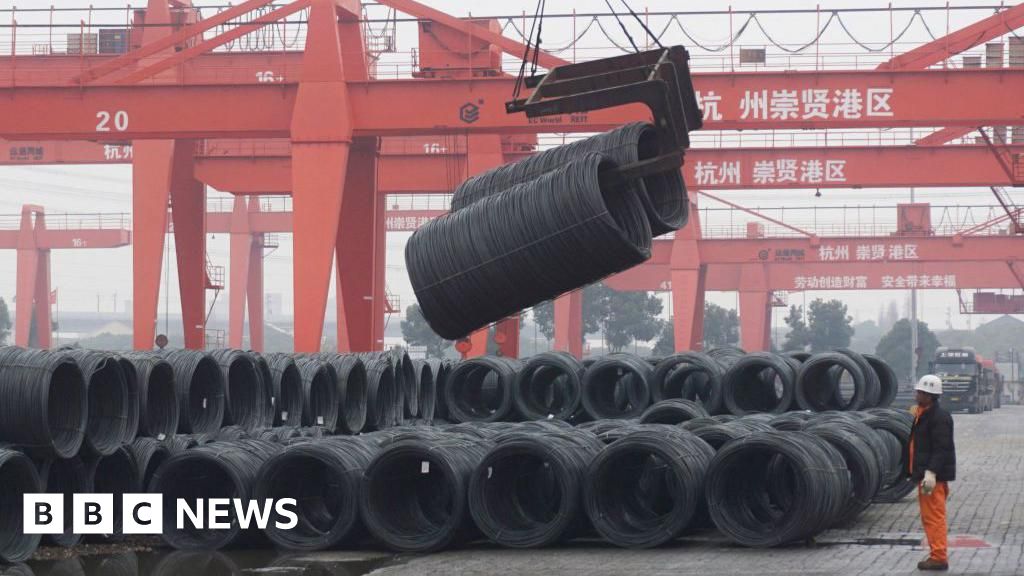ARTICLE AD BOX
Image source, Getty Images
The UK energy watchdog has said it will review how the price cap on gas and electricity bills is calculated following a series of company failures.
Ofgem said there had been an "unprecedented" rise in wholesale energy prices.
Suppliers are unable to pass on the full rise to consumers because of a price cap on household bills, prompting a number of firms to collapse.
Ofgem will examine if the price cap reflects the risks facing companies.
It said it will "consult on the price cap methodology to ensure it appropriately reflects the costs, risks and uncertainties facing suppliers".
A number of UK energy firms have gone bust in recent weeks after wholesale global gas prices surged by as much as 250% since the start of the year.
Ofgem can review the price cap - which is the maximum amount per unit that a supplier can charge households on a standard tariff - twice a year.
The most recent review lifted the price cap by 12% to a record £1,277.
In a letter to the energy industry, Ofgem's chief executive Jonathan Brearley, said: "The unprecedented rise in energy prices this year has changed the perception of risk and uncertainty in this market.
"In order to protect the interests of consumers, we must ensure that the regulatory frameworks, including the price cap, fully reflect the costs, risks and uncertainties facing the supply companies we regulate."
Over the past couple of months, more than two million households have seen their energy suppliers go bust because of the rise in gas prices.
Ofgem has stepped in to find a new energy supplier for these households.
However, it has also meant that consumers face higher energy bills because their new supplier may not be able to offer the tariff they were on before.
"We've got to take a cold, hard look at the energy market to understand what went wrong and to make sure we can stop this happening again," said Michael Lewis, UK chief executive of E.On, which has taken on customers from three collapsed energy companies.
"Customers are already facing steep rises in bills because of the sudden jump in wholesale energy costs, made worse by the added costs from the failure of more than a dozen energy companies."
Ofgem currently calculates the cap by looking at wholesale gas prices, energy suppliers' network costs and costs of government policies such as renewable power subsidies.
It will launch the consultation in November. A decision on any changes will be published in February, when the new price cap will be announced before it is implemented in April.

 3 years ago
126
3 years ago
126








 English (US) ·
English (US) ·